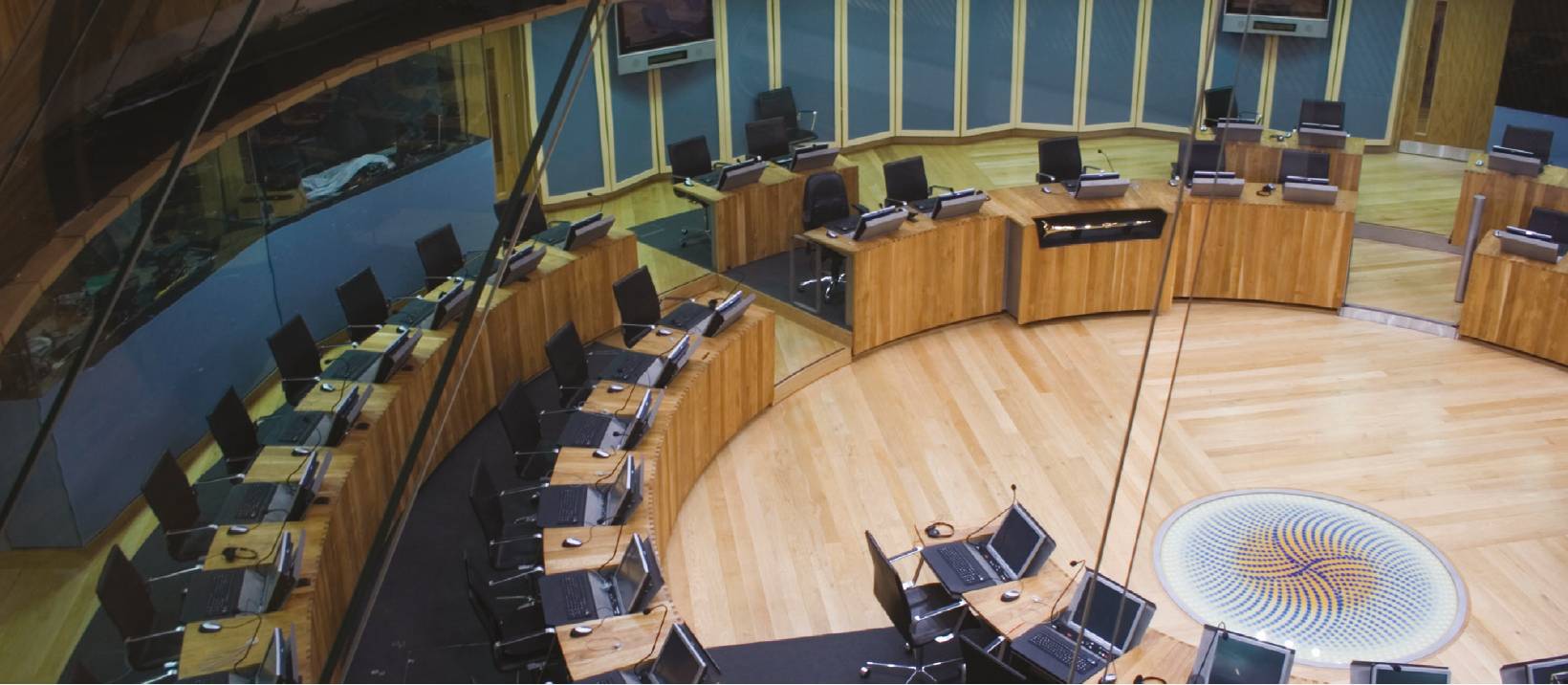Constitution update
Constitutional law update: Deddf Cymru 2017/ Wales Act 2017
Huw Pritchard describes the provisions of the latest Wales Act (WA), which amends the Government of Wales Act 2006 and the WA 2014, and devolves further powers to the country.

About the author
Dr Huw Pritchard is a lecturer in devolved law and governance at Cardiff School of Law and Politics, and a member of the Wales Governance Centre at Cardiff University. He is currently researching the devolution of justice in Wales following his report, Justice in Wales: principles, progress and next steps, published in September 2016.
The WA 2017 will introduce a new reserved powers model of devolution to Wales. This was recommended by the independent Commission on Devolution in Wales (‘ the Silk Commission’ ), in 2014, and committed to by the UK government in the St David’s Day white paper in 2015.* Currently, the National Assembly for Wales is conferred powers to legislate on 21 subject areas, such as education, health, and transport. The new arrangement will turn the current model on its head, and allow the National Assembly to legislate on any matter except for matters reserved to the UK parliament. This brings Wales more in line with the Scottish model of devolution.
Initially, the new reserved powers model may seem to grant Wales much wider powers. However, the WA 2017 will not significantly increase the legislative powers of the National Assembly. It will, on the whole, only transfer the 21 existing subjects into the new model by changing the test for legislative competence accordingly. One of the objectives of the new model is to have a clearer definition of what is devolved or not.
The current model has some grey (or ‘silent’ ) areas, where matters are neither clearly devolved to Wales nor clearly reserved to Westminster. Following the reference of the Agricultural Sector (Wales) Bill - Reference by the Attorney General for England and Wales [2014] UKSC 43 to the UK Supreme Court, matters which are not expressly devolved, but could ‘fairly and realistically relate to’ a devolved matter, are interpreted as being within the competence of the National Assembly (Agricultural Sector (Wales) Bill, para 67). This is how the National Assembly was able to touch on matters of employment for agricultural sector workers even though employment was not expressly devolved.
However, employment under the WA 2017 is reserved and the ‘relates-to ’ test, arguably, falls in favour of Westminster rather than the National Assembly. As a result, most of the current grey areas will, in future, be reserved, which means that there is a noticeable roll-back of powers to Westminster in some areas. The workability of the reserved powers model depends on the list of the matters reserved, and with nearly 200 reservations it is more likely that Welsh legislation will relate to a reserved matter.
Nevertheless, the National Assembly will also see new responsibilities. For example, the WA 2017 gives the National Assembly powers to control its own internal arrangements, including its name and arrangements for elections to the Assembly. Amendments made in the House of Lords also saw the devolution of ‘parental discipline’, which could see the law on reasonable chastisement reformed in Wales. Other noticeable devolved matters include school teachers’ pay and conditions, fixed odds gaming machines, and partial modification of compulsory purchase of land for devolved purposes.
Welsh Ministers will receive executive powers in areas, such as bus registration and taxi regulations, energy projects of up to 350MW, Welsh harbours, onshore oil and gas extraction (fracking), and marine licensing. However, the WA 2017 does not provide for a general transfer of executive functions in devolved areas as is the case in Scotland, where legislative and executive devolution go hand in hand.

A recurring criticism of the WA 2017 during its enactment was the lack of guiding principles to determine why some things are devolved and why others are not. Therefore, there are many more reserved matters in the Welsh arrangements compared with Scotland. One reason why this is so is that justice functions are not devolved to Wales, and England and Wales share a single legal jurisdiction.
For example, attempts were made in the House of Lords to devolve functions, such as anti-social behaviour orders and alcohol licensing because they overlap with devolved matters, such as local government and health.
However, the UK government argued that as these are matters for the criminal justice system, it was not possible to devolve them separately. Therefore, due to the overarching nature of justice, this is a substantial restriction which could restrict future Welsh legislation.
The ability of the National Assembly to legislate on reserved matters will be curtailed under the new arrangements. For example, it will only be able to legislate on reserved matters when this is ancillary and necessary for a devolved purpose. Also, before modifying functions of reserved public authorities, the consent of UK ministers is required. Therefore, it is less likely for devolved matters to overlap with reserved matters without scrutiny.
However, the laws of Wales, and those of England, will continue to diverge in devolved areas. The National Assembly will continue to be able - subject to certain restrictions - to create new offences and civil penalties within devolved areas. The practical challenges of maintaining two bodies of law within a single jurisdiction will continue to be tested. The UK government has announced a permanent committee to consider justice arrangements; however, this is unlikely to combat the underlying constitutional weaknesses related to having a single jurisdiction.
Although moving to a reserved powers model is considered to be more stable and to provide more symmetry, the precise arrangements under the WA 2017 are unlikely to be sustainable. This is, in part, because political events overtook the bill during its parliamentary passage. EU law is a core part of each devolution settlement, so how devolved responsibilities are shifted, as a result of powers returning to the UK, will have implications for future devolution arrangements, including the WA 2017, not least because new legislation made by the National Assembly will no longer need to comply with EU law. The sustainability of the arrangements is also in doubt because of the issue of devolution of justice, and the possible establishment of a distinct Welsh jurisdiction, has not been resolved.
* Available at: http://tinyurl.com/hr9vsuy and see Powers for a purpose: towards a lasting devolution settlement for Wales, available at: http://tinyurl.com/qxkam2u